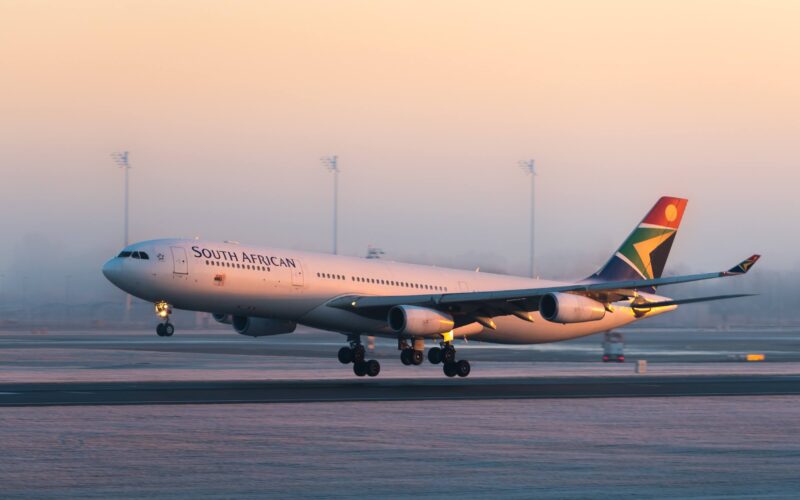As South Africa’s aviation market faces losses in domestic capacity following the collapse of Comair, South African Airways (SAA) CEO John Lamola has said that the “mentality has changed” at SAA, hinting things would be different with the running of the airline following its restructuring.
Speaking to CNN’s Richard Quest during a ‘Quest Means Business’ interview, Lamola said South Africa has a “special role” as an aviation market in Africa, describing the market as a “unique” and “strategic asset”.
While the South African government has a history of becoming involved in the airline’s operations, “the new SAA that we are leading is totally different”, Lamola added.
“[Africa] has the youngest population in the world and a growing GDP, and South African Airways is poised to exploit that market.”@flySAA_US CEO John Lamola talks the recovery of South Africa’s travel industry and how his airline fits in. pic.twitter.com/xuaWHpLdAE
— Quest Means Business (@questCNN) June 20, 2022
The ‘new’ SAA: what is different?
SAA is “majority owned by a non-government entity” and has emerged from its restructuring as an “agile, stripped-out airline with a focus strategy of unlocking the African market,” Lamola highlighted.
Lamola said that the flag carrier has restructured sufficiently to operate profitably and stated that “South African Airways is emerging out of the COVID pandemic as a new totally different operation.”
“For the first time SAA will be run by a private entity,” he added, alluding to the airline’s new Strategic Equity Partner (SEP), Takatso Consortium.
On June 11, 2021, South Africa’s Ministry of Public Enterprises named Takatso as SAA’s new SEP.
The consortium is comprised of two entities: Harith General Partners, a pan-African fund manager and investor in African infrastructure and airport development, and Global Airways, a local airline management firm.
Details of this partnership reveal that 51% of SAA shares will be owned privately by Takatso Consortium and 49% will be owned by the South African government. The government will also possess a ‘golden share’ of 33% of the entity’s voting rights, which will be a non-dilutable share as agreed on by all parties.
A strategic asset for the SA government. Are bailouts a thing of the past?
Bailouts are not “unique” to South African Airways only, said Lamola, who pointed out that airline bailouts have been prevalent across the world.
“During the COVID-[pandemic] period, governments around the world have put about $200 billion dollars, helping airlines perform their strategic role of creating connectivity, travel among people and trade,” Lamola said.
He added: “[The] South African government has been the main shareholder [of the airline in the past]. Like any other shareholder, when their investment is in trouble, and there is a strategic role for South African Airways, the government has always come into play.”
However, SAA’s CEO also emphasized that “the government has done what it has, but the mentality has changed.”

